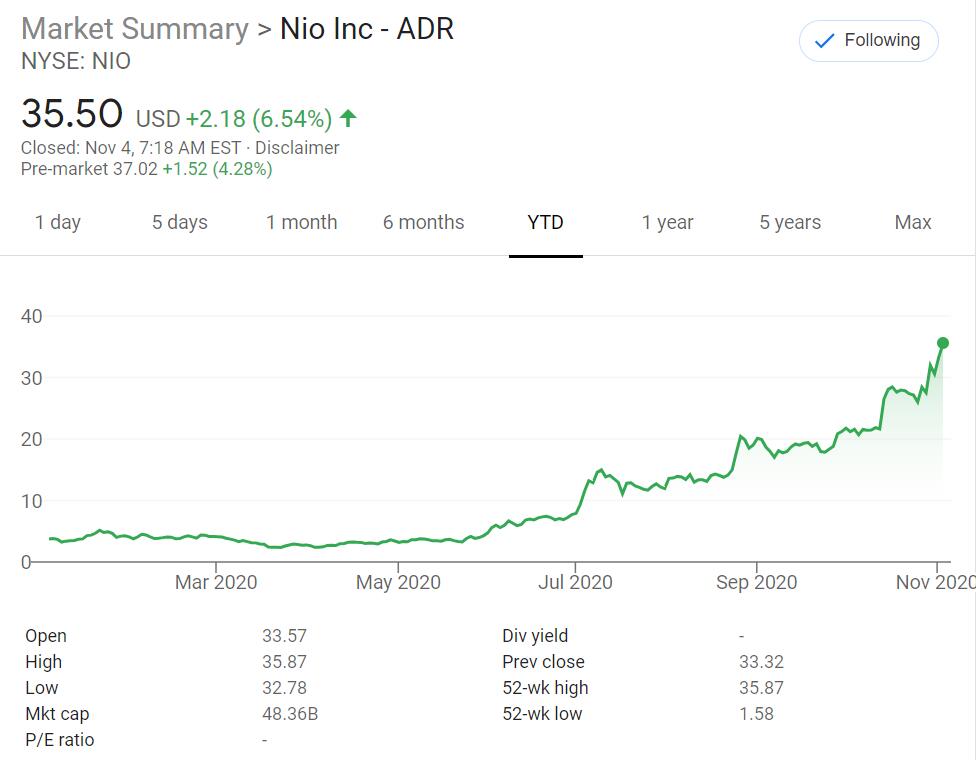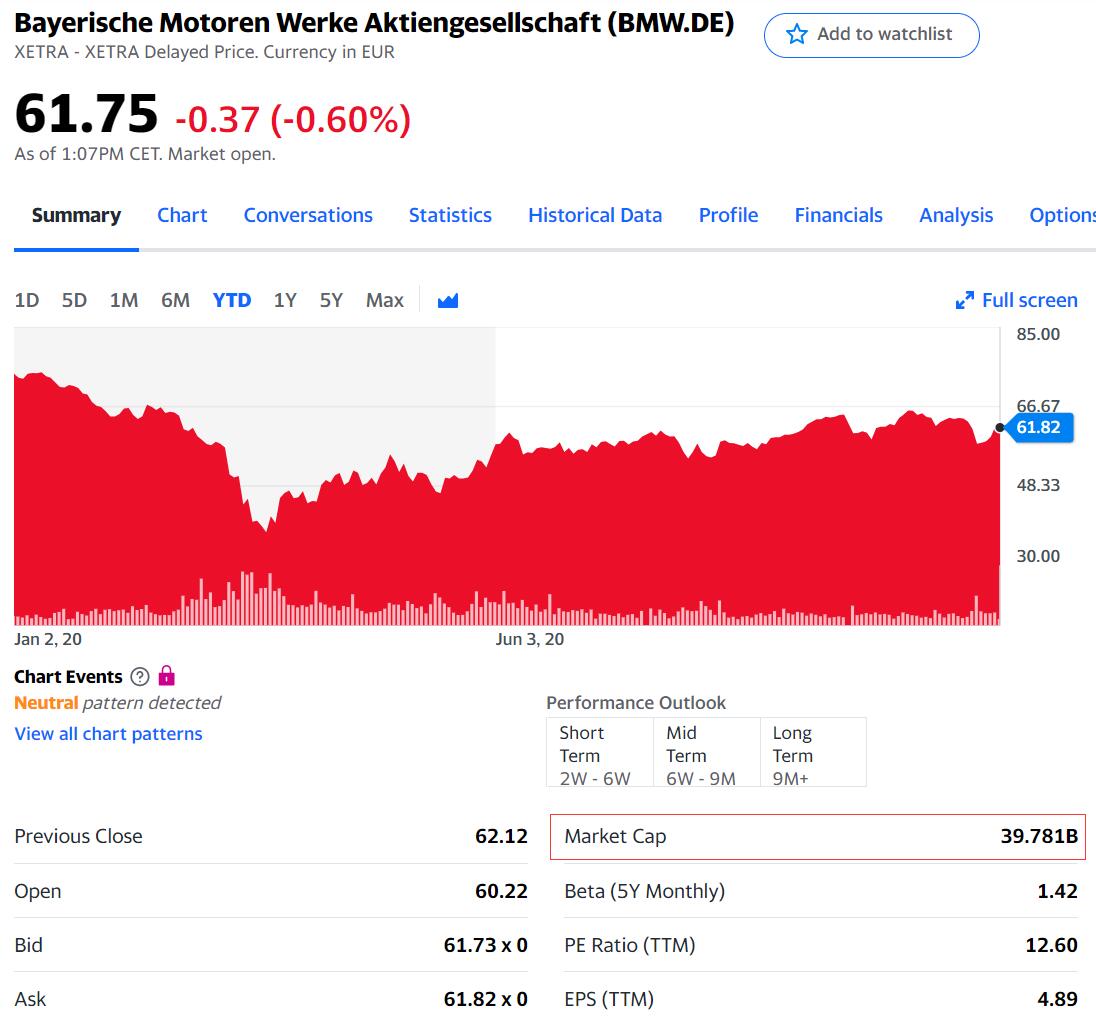The shares of Chinese electric vehicle (EV) maker Nio (NYSE: NIO) shares surged 6.54 percent to $35.50 on Tuesday, giving it a market capitalization of $48.3 billion, surpassing Frankfurt-listed BMW's €39.8 billion ($46.5 billion).
Nio stock performance year to date:

BMW stock performance year to date:
The historic moment was remembered in a November 3 post on Chinese social media by Wang Xing, founder, and CEO of China's online-service super-app Meituan, who is also a major supporter of Nio's local rival Li Auto.
By aggressively deploying the electric vehicle industry, Chinese automakers have been able to leave traditional car giants like BMW behind in terms of market capitalization, allowing a whole new era to officially begin.
As an early adopter of EVs among traditional carmakers, BMW's lackluster performance in the EV sector has long been criticized by Wang Xing, and it's something that many traditional car makers now need to face.
Wang Xing previously lamented the technology gap between the two traditional and new car makers, citing the Tesla as an example. A BMW X5 is said to have 300 million lines of software code, but a Tesla only has 10 million," he said. Very similar to the difference in lines of code between Symbian and iOS back in 2008."
As someone who has invested in domestic electric car companies, both himself and his Meituan, Wang Xing has a more thorough view of the electric car industry than most people do.
And the pressure that Tesla puts on traditional car companies is readily accepted by its peers, as Audi CEO Markus Duesmann previously told the media, claiming that Tesla is at least two years ahead of its peers in terms of computer and software architecture, as well as in terms of automated driving.
Once in the era of fuel-efficient cars, traditional carmakers ruled the auto industry, but with carbon emissions and environmental pressures, new energy car makers are gradually becoming the future of the auto industry.
Tesla, the pioneer of electric vehicles, undoubtedly occupies the high ground in the industry, but with the rise of new Chinese carmakers such as Nio and Li Auto, these former giants are feeling the pressure of the latecomers.
Nio's market capitalization over BMW can be seen as a sign that Chinese manufacturers are betting right on the electric car industry chain.
Wang Xing has made no secret of his interest in the EV industry long ago.
He has previously revealed why he and Meituan invested in Li Auto: firstly, because Li Xiang is an excellent entrepreneur, Li Auto has a great product, and the market for electric cars is huge.
When talking about the prejudice in the market towards these new car makers, Wang Xing said he never tries to convince people to buy Li ONE, he just advises them to "try" Li ONE, drive it, take a ride and feel it for themselves before making a decision.
"Some people have never experienced Li ONE before and are not optimistic about it based on industry experience, theory, and common sense. My dad, after experiencing the Li ONE, said he would replace the Mercedes S-Class with the Li ONE. besides supporting Chinese products, his reason was surprisingly to save money." Wang Xing had said.
As the world's major auto markets announced the timing of the ban on fuel vehicles, new energy vehicles have been seen as the future direction of development, both traditional car companies and newly emerging new energy vehicle manufacturers are grasping the layout of core technologies such as batteries and electronic control.
In the electric vehicle industry chain, Chinese companies such as CATL and BYD have made remarkable achievements, and CATL has repeatedly become the global champion of installed power battery capacity.
The giants of the fuel-efficient car era have passed, while the expansion of the electric car market has given new Chinese carmakers like Nio, Li Auto, and Xpeng the opportunity to compete with traditional carmakers.
But for domestic electric car makers, the rival may no longer be BMW or Volkswagen, but Tesla.
